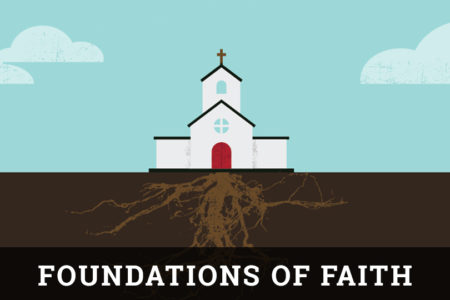Siddur: The Book Of Prayer
Like so many other Jewish adults, I well remember the long and arduous process of learning the liturgy of Hebrew prayers involved in worship. It started with the simple rote learning of the Hebrew alphabet. Once our teacher was convinced that we had mastered the Hebrew letters, he taught us to say and understand vocabulary until we became proficient readers. Next came the introduction to a thick, intimidating book, bound in white leather, called the Siddur. It was exciting to realize that we were communicating with the Creator in the language of heaven, as we had been taught it was. The Siddur contains most, if not all, of the prayers to be recited in a Jewish person’s life. For this reason, the Jewish community places a high value on familiarity with this most holy book. In the previous article we saw the introduction, interpretation, and intensity of Jewish prayer. This article centers on the distinctiveness of Jewish prayer through a cursory examination of the Siddur.
Examining the table of contents of a Siddur, you will immediately see the reason for its name. Siddur means order, and in this case it is the order of prayers. It is however much more than a prayer book, for inherent in the various prayers are a conglomerate of biblical, talmudic, and rabbinical regulations. The Siddur, by its very nature, is a source of unity in Judaism, a religion whose adherents otherwise differ greatly in their beliefs and opinions. Visit any synagogue around the world and you will find essentially the same prayer book, for its contents are a universal entity among Jewish people.
The types and times of prayer are designated by the Siddur. Three types of prayers are found. The first type is Praise, which is designed to praise God as the Creator of the heavens and the earth. A praise prayer always involves the declaration of God’s holiness, kindness, goodness, and power, and extolls His very name. A second type of prayer is Thanksgiving. This is simply a recognition of the fact that God has poured out abundant blessings upon His people. They are offered to express thanks to God for the Torah (God’s Word), as well as an appreciation for our heritage, history, and the supply of our daily provision. The third type of prayer is Supplication. This is how most people view prayer; that is, asking God to meet a need. While this is a definite part of Jewish prayer, it is by no means the part most emphasized. Most of the requests are national in scope, rather than personal. Requests such as peace for the world, a desire for the Messiah to come, and a desire for the Temple to be rebuilt are but a few of the suppliant prayers in the Siddur. On a more personal level, there are prayers for a prosperous and healthy life and for all men to live like brothers.
Once we understand the types of Jewish prayer, we must learn the times when they are to be prayed. Daily prayers are recited every morning (Shacharit), noon (Mincha), and evening (Ma’ariv). This practice undoubtedly came from the example of Daniel, who prayed three times a day, as recorded in Daniel 6:10. The psalmist wrote, “Evening, and morning, and at noon, will I pray, and cry aloud, and he shall hear my voice” (Ps. 55:17). According to the Talmud, Abraham instituted the morning prayer, Isaac the afternoon prayer, and Jacob the evening prayer.
Shacharit is the longest of the three daily times of prayer. It represents the early morning sacrifice brought to the Temple and must take place between sunrise and noon. Included in it are various blessings and songs, as well as prayers for the Monday, Thursday, and Sabbath readings of the Torah. One prayer is common to all three times of daily prayer—the Shemoneh Esrei, which means 18 blessings. Because the worshiper stands to recite this prayer, it is also known as the Amida (standing). Interestingly, a 19th blessing was added over the course of time, but the name remains Shemoneh Esrei.
It is also at the morning service that the Tefillin, or phylacteries, are worn.
Mincha takes place in the afternoon, after one o’clock and before sunset. It is the shortest of the daily prayers, yet it is considered the most rewarding because it is difficult to take time out of a business day to recite its liturgy. Thus, the “sacrifice” should deserve a reward. Three prayers are recited, including the Shemoneh Esrei; the happy prayer called Ashrei, which is Psalm 145; and Aleinu, which proclaims God as King over all humanity. Ma’ariv, the evening service, can be prayed any time after sunset and before sunrise. Included in this service are the Sh’ma (Dt. 6:4), Shemoneh Esrei, and Aleinu.
Other prayer times are listed in the Siddur. One is for the Sabbath, which, in addition to the other daily prayers, includes some prayers that are unique for this day of rest. There are also prayers for the many holy days and festivals.
Certainly one of the most difficult times in life is when a loved one passes on. It is at this time that the Kaddish (sanctification) is recited. Often thought to be a prayer for the dead, it actually is an Aramaic poem that wonderfully exalts God’s name. The Kaddish is patterned after Job 13:15, which states, “Though he slay me, yet will I trust him.” It has no direct reference to God. The Kaddish is a prayer that almost every Jew will recognize: “Hallowed and enhanced may He be throughout the world of His own creation…May He be praised throughout all time…Glorified and celebrated, lauded and praised, acclaimed and honored, extolled and exalted…May the prayers and pleas of the whole house of Israel be accepted by our Father in Heaven.”
The last section of the Siddur contains prayers to be recited before and after meals, weddings, births, circumcisions, and times of illness. Thus, the entire range of human life is covered by these prescribed prayers.
Speaking from experience, as well as observation, I must say, sadly, that the weakness of the prayers in the Siddur is not in the content of the prayers, but rather in the lack of understanding on the part of those praying them. The inherent beauty and sincerity are lost.
Those of us who believe that Jesus is our Messiah can pray from a book or from the heart without learning a special language. Our emphasis should be to “Pray without ceasing” (1 Th. 5:17) and, like our Jewish friends, to be in awe of the privilege of personal communication with the Creator of the universe.








